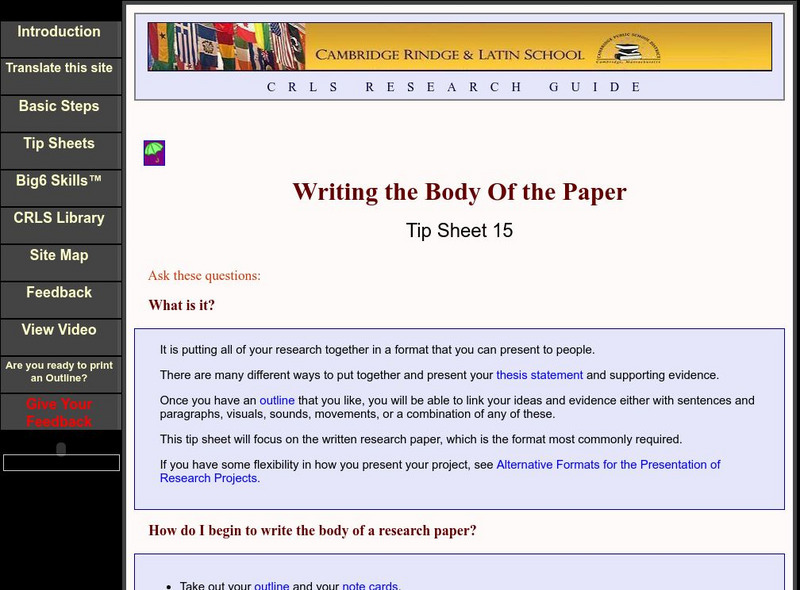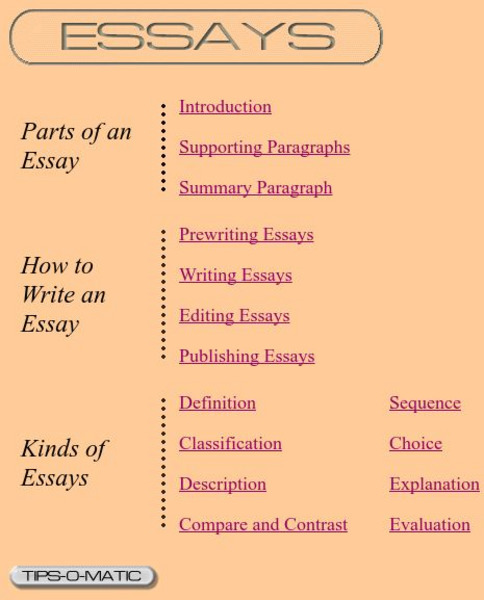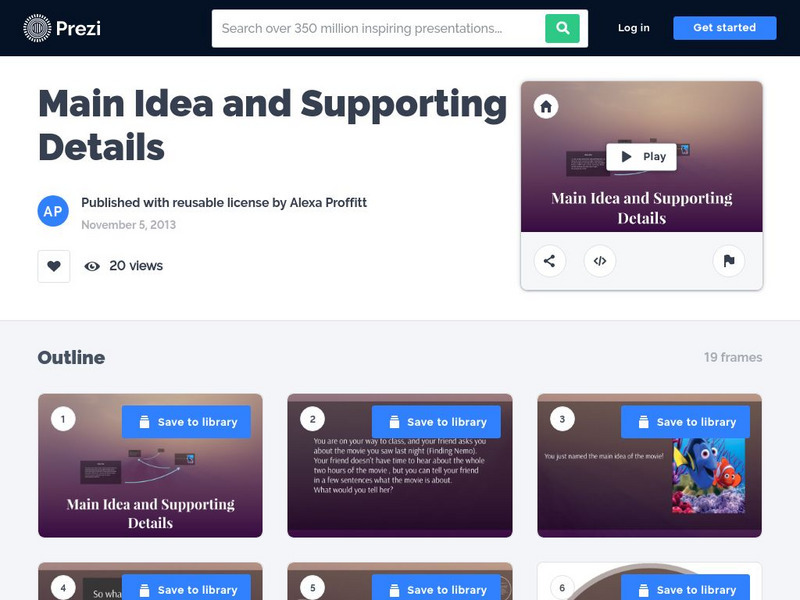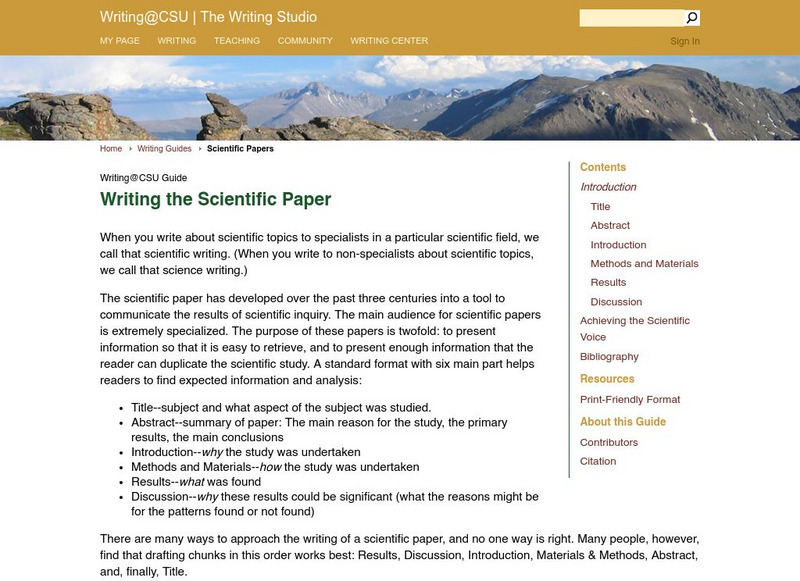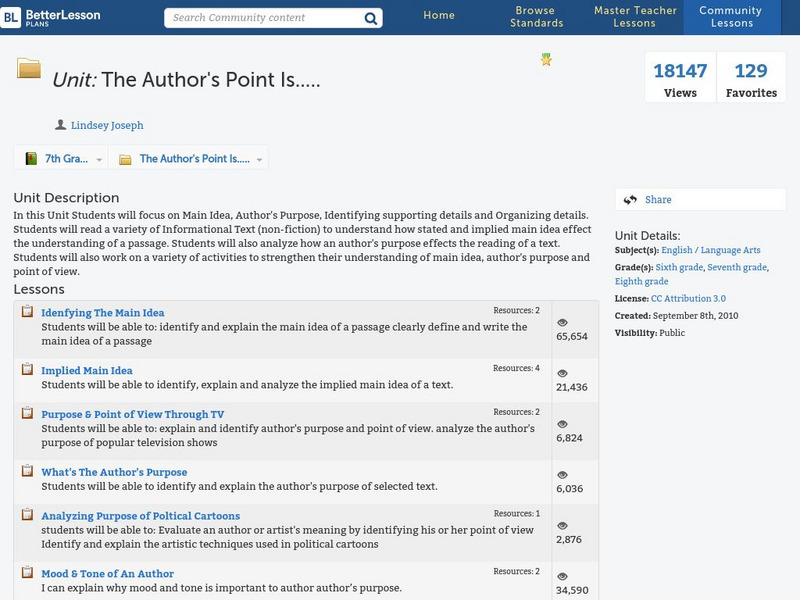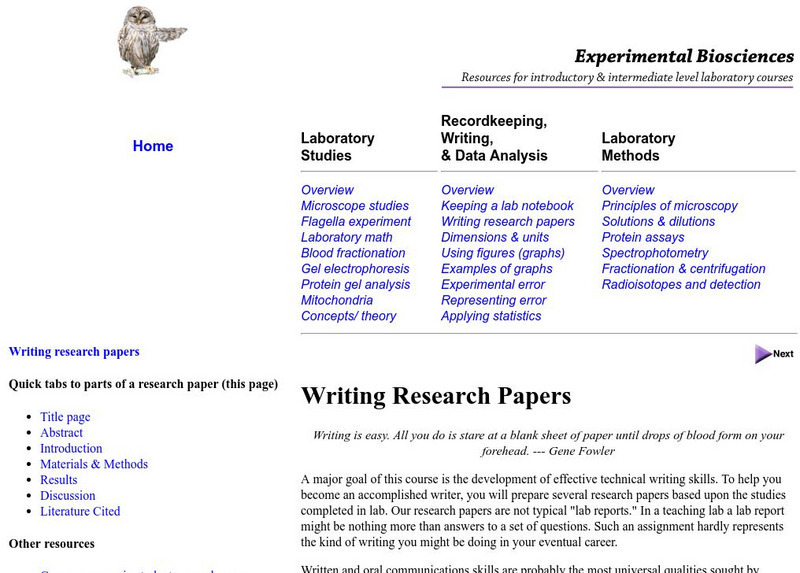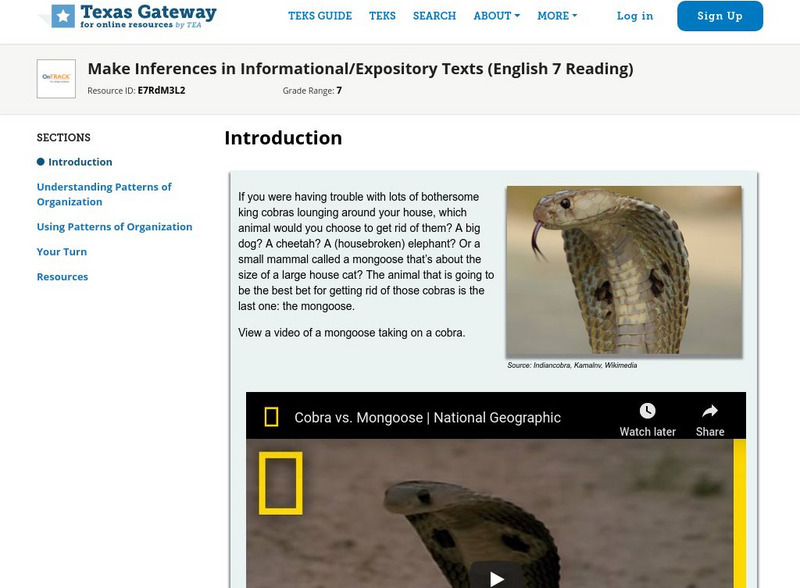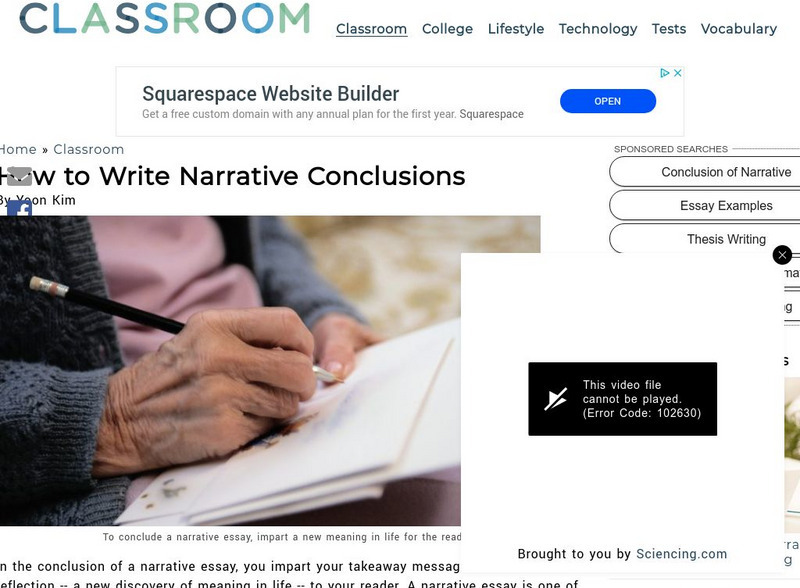Other
English Companion: Reading Expository Text
Taken from "Reading Reminders: Tools, Tips, and Techmiques," the information on this website provides advice on how to read, understand, analyze, and write expository texts.
ReadWriteThink
Read Write Think: Collaborating, Writing, Linking: Use Wiki to Tell Stories Online
This lesson has students create stories that reflect wiki kind of reading. Students begin by reading untraditional books that use fragmented storylines, multiple perspectives, and unresolved plots. They apply these same types of...
Cambridge Rindge & Latin School
Cambridge Rindge & Latin School: Writing the Body of a Research Paper
An excellent tip sheet on how to write and create the bulk of a research paper: the body includes in-depth information, examples, as well as links to earlier steps in the process such as thesis statements, notecards, outline,...
ACT360 Media
Writing Den: Essay Writing Tips
All you want to know about writing essays, from prewriting to editing. Click on the tip-o-matic and find tips on anything dealing with grammar or writing.
Joe Landsberger
Study Guides and Strategies: Expository Essays
This page has eight basic steps for writing expository essays: select topic, write the thesis, choose a method of development, organize, write topic sentences for body paragraph, write the body paragraphs, write an introduction, and...
E Reading Worksheets
E Reading Worksheets: Fact and Opinion Lessons
In this learning module, students will learn more about the differences between facts and opinions. A PowerPoint presentation and related activity are provided to reinforce the topic of facts vs. opinions. This module is designed to...
CK-12 Foundation
Ck 12: 1.1: Descriptive Essays
[Free Registration/Login may be required to access all resource tools.] Learn everything you need to know about writing a descriptive essay including: using language that appeals to the five senses; understanding the difference between...
TES Global
Tes: Guided Reading Resources: Nonfiction
[Free Registration/Login Required] This learning module contains several guided reading resources. Students will be able to use the charts to guide themselves as they discuss informational texts and persuasive texts. Teachers can monitor...
Other
Prezi: Inference Lesson 8th Grade
Learn what it means to make an inference by combining the author's clues and your background knowledge.
Other
Prezi: Main Idea and Supporting Details
Defines and provides examples of the main idea of a paragraph and also explores the meaning of key details.
Sophia Learning
Sophia: Supporting Details: Facts and Statistics
This lesson discusses how statistics can be used as supporting details. This tutorial shares a short audio lesson [05:16] and supplemental notes with the lesson's content.
Colorado State University
Colorado State Writing Center: Writing the Scientific Paper
A guide to the world of writing in the scientific field. Includes information about scientific-format papers, abstracts, hypotheses and results, and provides several examples.
Varsity Tutors
Varsity Tutors: Web English Teacher: Expository Writing
This Web English Teacher provides great links and resources for assistance, activities, and information about expository writing.
Better Lesson
Better Lesson: Unit: The Author's Point Is
Students will focus on Main Idea, Author's Purpose, Identifying supporting details and Organizing details. Students will read a variety of Informational Text (non-fiction) to understand how stated and implied main idea effect the...
University of North Carolina
University of North Carolina: Writing Center: Handouts: Writing About Science
Information and specific tips on what scientific writing is and how to make it more precise, clear, and objective.
Rice University
Rice University: Writing Research Papers
This site presents information about the necessary parts of a scientific research report. It also contains a sample abstract and introduction.
Texas Education Agency
Texas Gateway: Analyze Texts With Similar/different Purposes
[Accessible by TX Educators. Free Registration/Login Required] Make complex inferences and use textual evidence such as imagery and figurative language to support understanding.
Texas Education Agency
Texas Gateway: Make Inferences in Informational/expository Text
[Accessible by TX Educators. Free Registration/Login Required] By using different organizational patterns as guides, learn how to make subtle inferences and draw complex conclusions while distinguishing factual claims.
Texas Education Agency
Texas Gateway: Make Inferences in Informational/expository Texts
[Accessible by TX Educators. Free Registration/Login Required] Use different organizational patterns as guides for summarizing and forming an overview of different kinds of expository text while distinguishing factual claims from...
Other
Canadaone.com: Sailing the Seven Cs of Effective Writing
Interesting article from Canadaone.com that outlines the author's seven C's of effective writing. Each of the concepts (all beginning with the letter "C") includes an explanation that demonstrates why the concept is important to the...
University at Buffalo
Writing Strategies
Provides some help with the difficult job of teaching writing by providing some strategies for students to follow. Easy to navigate from the top of the page, strategies are categorized into grade 3-6 and 6-12, in addition to lesson plan...
University of North Carolina
University of North Carolina: Writing Center Tips & Tools
The documents and videos collected here touch on most aspects of good academci writing, and all aspects of the writing process. Students can choose from the many topics to address the specific skill or concept they need to master.
Other
Learning Farm: Compare and Contrast Informational Texts
In this narrated tutorial, students are presented with information about first and third points of view, then read two passages about the same event and answer questions that compare how the topic is presented. After completing the...
Leaf Group
Classroom: How to Write Narrative Conclusions
This article focuses on how to write conclusions for narratives by sharing a takeaway message, a lesson or a reflection -- a new discovery of meaning in life -- for your reader. W.9-10.3e Conclusion, W.11-12.3e Narrative Conclusion




